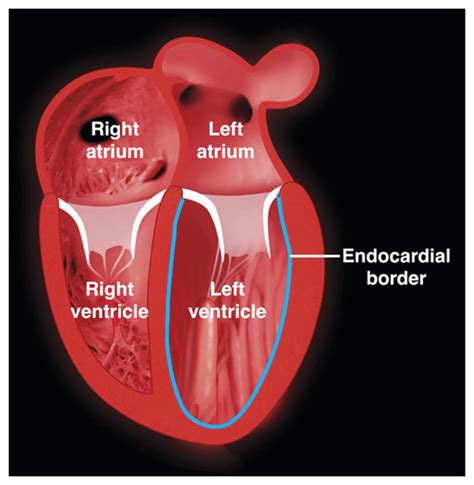heart lv | living with left ventricular hypertrophy heart lv Left ventricular hypertrophy (LVH) is when the heart’s main pumping chamber, the left ventricle, becomes thicker and less able to pump blood efficiently. It usually develops because of another.
Contact us 2313 Ware St, Abbotsford, BC, V2S3C6 Phone: +1 604-853-0313 Email: .
0 · what is heart lv function
1 · signs of left ventricular hypertrophy
2 · living with left ventricular hypertrophy
3 · life expectancy with lvh
4 · left ventricular wall thickness women
5 · heart ventricle problems
6 · happy hearts lv
7 · enlarged left ventricle life expectancy
October 26, 2021. Tasting Notes: About: 40% ABV, Aged 12 years in oak, $47. Aberfeldy, Scotland. Appearance: A light honey color. Nose: Dried apricot and red apple come forward first. The fruity notes are followed by leather and oak. Gently charred raw sugar hits next with a nutty quality that finishes out the nose with the sharp spice of clove.
Left ventricular hypertrophy, or LVH, is a term for a heart’s left pumping . The left ventricle is the thickest of the heart’s chambers and is responsible for . Left ventricular hypertrophy changes the structure of the heart and how the heart works. The thickened left ventricle becomes weak and stiff. This prevents the lower left heart chamber from filling properly with blood. Left ventricular hypertrophy, or LVH, is a term for a heart’s left pumping chamber that has thickened and may not be pumping efficiently. Sometimes problems such as aortic stenosis or high blood pressure overwork the heart muscle.
The left ventricle is the thickest of the heart’s chambers and is responsible for pumping oxygenated blood to tissues all over the body. By contrast, the right ventricle solely pumps blood to the. Left ventricular hypertrophy (LVH) is when the heart’s main pumping chamber, the left ventricle, becomes thicker and less able to pump blood efficiently. It usually develops because of another.
Learn more about this heart condition that causes the walls of the heart's main pumping chamber to become enlarged and thickened. If you have a heart condition that could lead to LVH, catching and treating it early can make a big difference. Treatment can help prevent left ventricular hypertrophy from developing. It can also reduce the risk of damage to your heart muscle. The left ventricle hypertrophies in response to pressure overload secondary to conditions such as aortic stenosis and hypertension. This results in increased R wave amplitude in the left-sided ECG leads (I, aVL and V4-6) and increased S .The left ventricle is the heart’s main pumping chamber. It pumps oxygen-rich blood from your heart to the aorta and out to your body. When you have LVH, the muscle wall of the left ventricle becomes thick (hypertrophy) and enlarged.
Left ventricular hypertrophy (LVH) is thickening of the heart muscle of the left ventricle of the heart, that is, left-sided ventricular hypertrophy and resulting increased left ventricular mass.Left ventricular hypertrophy (LVH) means that the muscle of the heart's main pump (left ventricle) has become thick and enlarged. This can happen over time if the left ventricle has to work too hard. This part of the heart needs to be strong to pump oxygen-rich blood to your entire body. Left ventricular hypertrophy changes the structure of the heart and how the heart works. The thickened left ventricle becomes weak and stiff. This prevents the lower left heart chamber from filling properly with blood. Left ventricular hypertrophy, or LVH, is a term for a heart’s left pumping chamber that has thickened and may not be pumping efficiently. Sometimes problems such as aortic stenosis or high blood pressure overwork the heart muscle.
The left ventricle is the thickest of the heart’s chambers and is responsible for pumping oxygenated blood to tissues all over the body. By contrast, the right ventricle solely pumps blood to the.
what is heart lv function

signs of left ventricular hypertrophy
Left ventricular hypertrophy (LVH) is when the heart’s main pumping chamber, the left ventricle, becomes thicker and less able to pump blood efficiently. It usually develops because of another. Learn more about this heart condition that causes the walls of the heart's main pumping chamber to become enlarged and thickened.

If you have a heart condition that could lead to LVH, catching and treating it early can make a big difference. Treatment can help prevent left ventricular hypertrophy from developing. It can also reduce the risk of damage to your heart muscle.
The left ventricle hypertrophies in response to pressure overload secondary to conditions such as aortic stenosis and hypertension. This results in increased R wave amplitude in the left-sided ECG leads (I, aVL and V4-6) and increased S .The left ventricle is the heart’s main pumping chamber. It pumps oxygen-rich blood from your heart to the aorta and out to your body. When you have LVH, the muscle wall of the left ventricle becomes thick (hypertrophy) and enlarged.Left ventricular hypertrophy (LVH) is thickening of the heart muscle of the left ventricle of the heart, that is, left-sided ventricular hypertrophy and resulting increased left ventricular mass.

living with left ventricular hypertrophy

mickey kors
A5 Flyer Stand with Business Cards Holder,A5 Flyer Stand Laser Cut Svg Files, Vector Files For Wood Laser Cutting, 3mm Material Thickness. (222) £3.94. £4.93 (20% off) .
heart lv|living with left ventricular hypertrophy


























